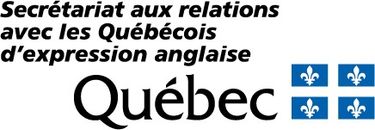Call for potential participation
Heritage, Memory and Vitality of Linguistic Minorities:
Research Advances, Best Practices and Critical Approaches
May 2020
88th Acfas congress
Sherbrooke, Quebec
Image: King Street and East Sherbrooke bridge, Sherbrooke, P.Q. Montreal :Montreal Import Co.,[190-?] (BAnQ)
Once again, the Quebec English-Speaking Communities Research Network (QUESCREN) and the Canadian Institute for Research on Linguistic Minorities (CIRLM) are co-organizing a research conference to take place at the annual Acfas congress. The title of the conference is Heritage, memory and vitality of linguistic minorities: research advances, best practices and critical approaches. Our conference will take place over two days (dates to be confirmed) during the Acfas congress scheduled for May 4 to 8, 2020.
Would you consider participating? If so, please let us know by filling out this online form by Monday, October 28, 2019. More information is below. Note that we will send out a formal call for papers later in the year, once Acfas accepts our conference proposal.
Background
Founded in 1923, Acfas (Association francophone pour le savoir) is a non-profit organization prmoting research in French. Its congresses are important events that bring together dozens of subject-specific conferences, including ours. Next year’s congress will be held on May 4-8, 2020 in Sherbrooke, at Bishop's University and Université de Sherbrooke. Information on the congress is here.
In previous years, QUESCREN and CIRLM, together and separately, have organized many conferences at the Acfas congresses. You can read about QUESCREN’s past conferences here, and CIRLM’s here. These multidiciplinary events address different topics related to Canada’s official language minority communities, that is, English-speaking communities in Quebec and Francophone communities outside Quebec. They bring together academic, government, and community-based researchers and community practitioners that are our research partners. Together, they share knowledge of research results and case studies of community practice, and discuss realities of Canada’s official language minority communities.
The 2020 conference
Co-organizers
The 2020 conference co-organizers are Drs. Patrick Donovan and Lorraine O’Donnell of QUESCREN and Dr. Anne Robineau of CIRLM.
Title
Heritage, memory and vitality of linguistic minorities: research advances, best practices and critical approaches
Description
The conference will explore links between heritage, memory and vitality of linguistic minorities in Canada and the world.
One of our objectives is to assess the role of minority community memory through case studies of practices highlighting different aspects of communities’ pasts. How do we remember today? What histories do minority communities construct? How do they do so? What is the influence of social relationships, both within communities and with majorities, on this construction of the past? How do minority communities relate to their pasts, and how do these relationships contribute to present-day community development? The conference will focus on practices and places that transmit community memory and history at the local, regional, national, and international levels.
We will also reflect on how groups and individuals from these communities use ideas about heritage and history.How do their discourses and practices contribute to minority language community vitality (Giles, Bourhis and Taylor). How do they navigate the tensions between heritage and history? Lowenthal differentiates the historical discipline, which is meant to be objective and disinterested, and heritage, which aims to inform the present: "We use heritage to improve the past, making it better (or worse) by modern lights."
We are likewise interested in commodification of minority community heritage and memory activities. How does the past translate into a tourism industry and tourism products (museums, exhibitions, guided tours)? What is the economic impact of these activities and to what extent, if any, is "scientific credibility" (Goulding) sacrificed? What is the "heritage industry" in a minority language environment, and what opportunities and risks does it present? Given such cultural and economic issues, how can an open dialogue about the strengths and weaknesses of these constructed histories take place?
The conference will be interdisciplinary and we encourage critical approaches to the concepts of heritage, memory and vitality as applied to linguistic minorities, as well as empirical research on this theme. For example, the protection of tangible and intangible heritage (supported by successive UNESCO conventions) has considerably expanded possibilities for listing heritage and diversifying actions to protect it. Although the 2003 Convention has not been ratified by Canada, its definition of intangible heritage has been widely used and interpreted by groups, associations and individuals working to protect the heritage of linguistic minorities, especially because it strengthens and reaffirms existing practices. The notion of heritage links to that of collective memory, which refers to the process through which social representations and symbols are constructed around key people and events from a community's history. Ashworth et al. (2007) consider heritage to be the use of the past as cultural, political and economic resources for the present. These processes can impact community vitality, because they generate discourse in the public space and mobilize stakeholders to select components of a community's heritage (tangible or intangible) to be conserved. In the context of cultural plurality and cosmopolitanism, which has an effect on minority language communities, it is worthwhile to examine the evolution of heritage practices and discourses that integrate new perspectives and new groups contributing to community vitality.
Themes that could be explored include
- Heritage practicies, construction of memory, and minority community vitality (eg., building identities, communities, and promoting economic development)
- Best practices in OLMC heritage initiatives
- The integration of minority histories in the school curriculum; how linguistic minority groups link their histories to majority group history narratives
- “Amateur” vs. “professional” (academic) history
- Heritage activities (eg., tourism, festivals, exhibits, etc.) and economic development
- Networking of OLMC heritage, history centre, and archives organizations
- Community group archives and organizational memory
- Cosmopolitanism and the turn from collective history narratives to individualist ones
- “Folklorization,” “cultural performance,” and “cultural commodification:” what do these critical concepts reveal about OLMC heritage and memory practices.
References
Ashworth, Gregory, Brian Graham and John Tunbridge, Pluralising Pasts: Heritage, Identity and Place in Multicultural Societies. London: Pluto Press, 2007.
Charbonneau, André and Laurier Turgeon, eds. Patrimoines et identités en Amérique française. Quebec: Presses de l’Université Laval, 2010.
Giles, Howard, Richard Y. Bourhis and Donald Taylor. “Towards a theory of language in ethnic group relations.” In H. Giles (ed.), Language, ethnicity and inter-group relations, pp. 307-348. London: Academic Press, 1977.
Goulding, Christina. “The commodification of the past, postmodern pastiche, and the search for authentic experiences at contemporary heritage attractions.” European Journal of Marketing, Vol. 34 No. 7 (2000), pp. 835-853.
Heinich, Nathalie. La Fabrique du patrimoine: De la cathédrale à la petite cuillère. Paris: Les Editions de la MSH, 2009.
Landry, Michelle, Martin Pâquet, et Anne Gilbert, eds. Mémoires et mobilisations. CEFAN. Québec: Presses de l’Université Laval, 2015.
Lowenthal, David. The Heritage Crusade and the Spoils of History. Cambridge: Cambridge University Press, 1998.
Nora, Pierre. Les Lieux de mémoire. Bibliothèque illustrée des histoires. Paris: Gallimard, 1984.
Pâquet, Martin, and Stéphane Savard. Balises et références: Culture française d’Amérique. Québec: Presses de l’Université Laval, 2007.
Roberge, Martine, ed. Valoriser la culture francophone: des stratégies communautaires et identitaires Informations. Quebec: Presses de l’Université Laval, 2016.
Your potential participation in the 2020 conference
We are currently developing our 2020 conference proposal to be sent to Acfas in November. For this proposal, we need the names of several potential participants.
Would you consider participating in this conference? Would you like to make a presentation or organize a panel of speakers around a subject area? Would you like to organize a roundtable?
Please let us know by filling out this online form by Monday, October 28, 2019. You will be asked the following information:
- Your name and position
- The nature of your possible participation: an individual presentation (paper) or a session (group of presentations, round-table or workshop)
- Provisional title
Regarding the formal call for papers (winter 2019-2020)
If the Acfas organizing committee accepts our conference proposal, we will send out a formal call for papers (or presentations) in late December 2019 or early January 2020. At that point, a program committee will evaluate each proposal for inclusion in the conference program.
Note on the language of our conference
Proposals and presentations may be in either French or English. Although our conference within the Acfas congress will be bilingual, please note that Acfas itself is a French-language scholarly association and its annual congress operates in French. Given this, conference organizers will be pleased to help with registration and with translation into French of key research findings for those presenting in English.
Our community partners
We are pleased to have the Eastern Townships Resource Centre and the Townshippers’ Association as our community partners for this event. QUESCREN acknowledges the support of the Government of Quebec, the Government of Canada, and Concordia University.
For more information about QUESCREN, please sign up for our newsletter at this link.


